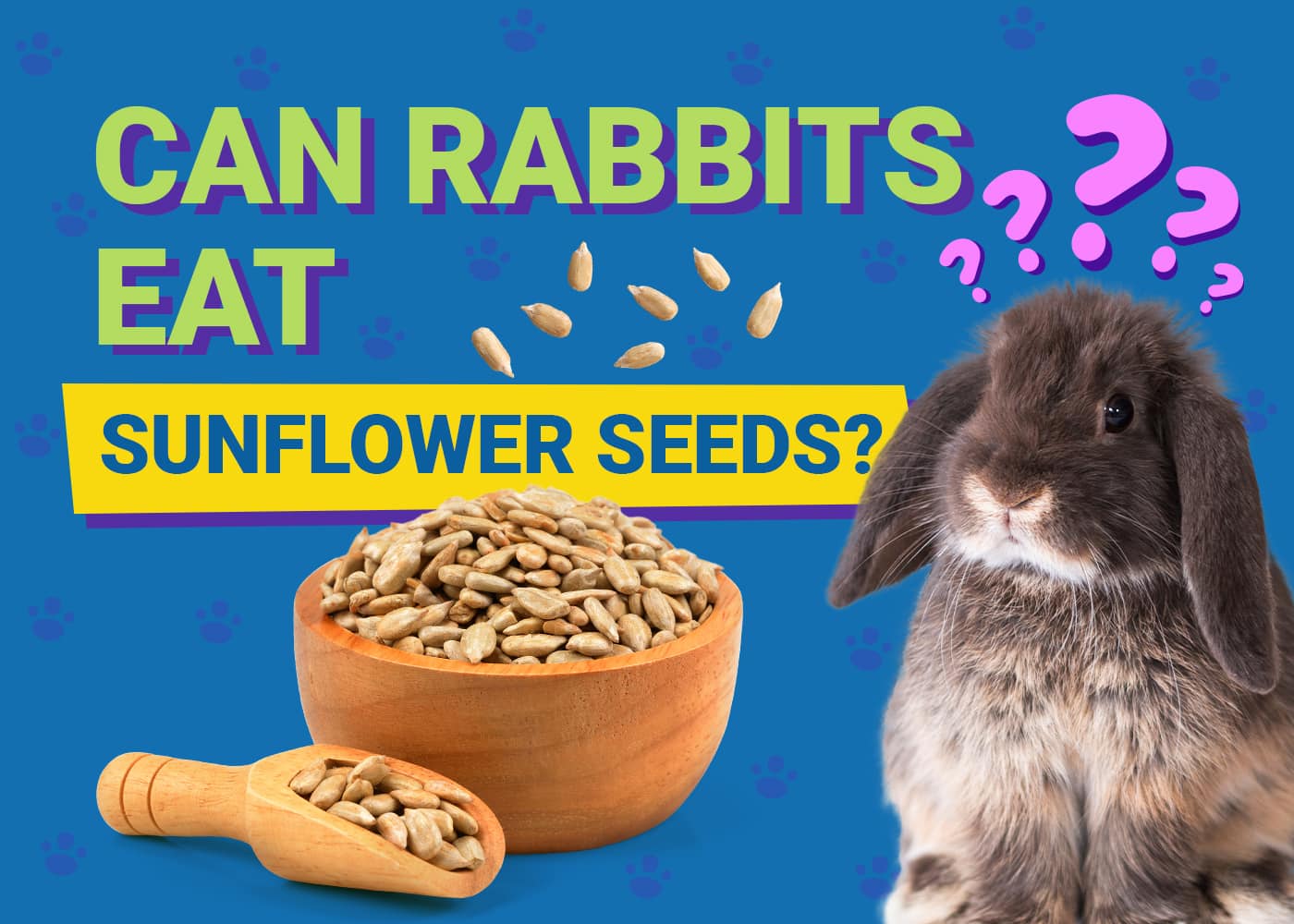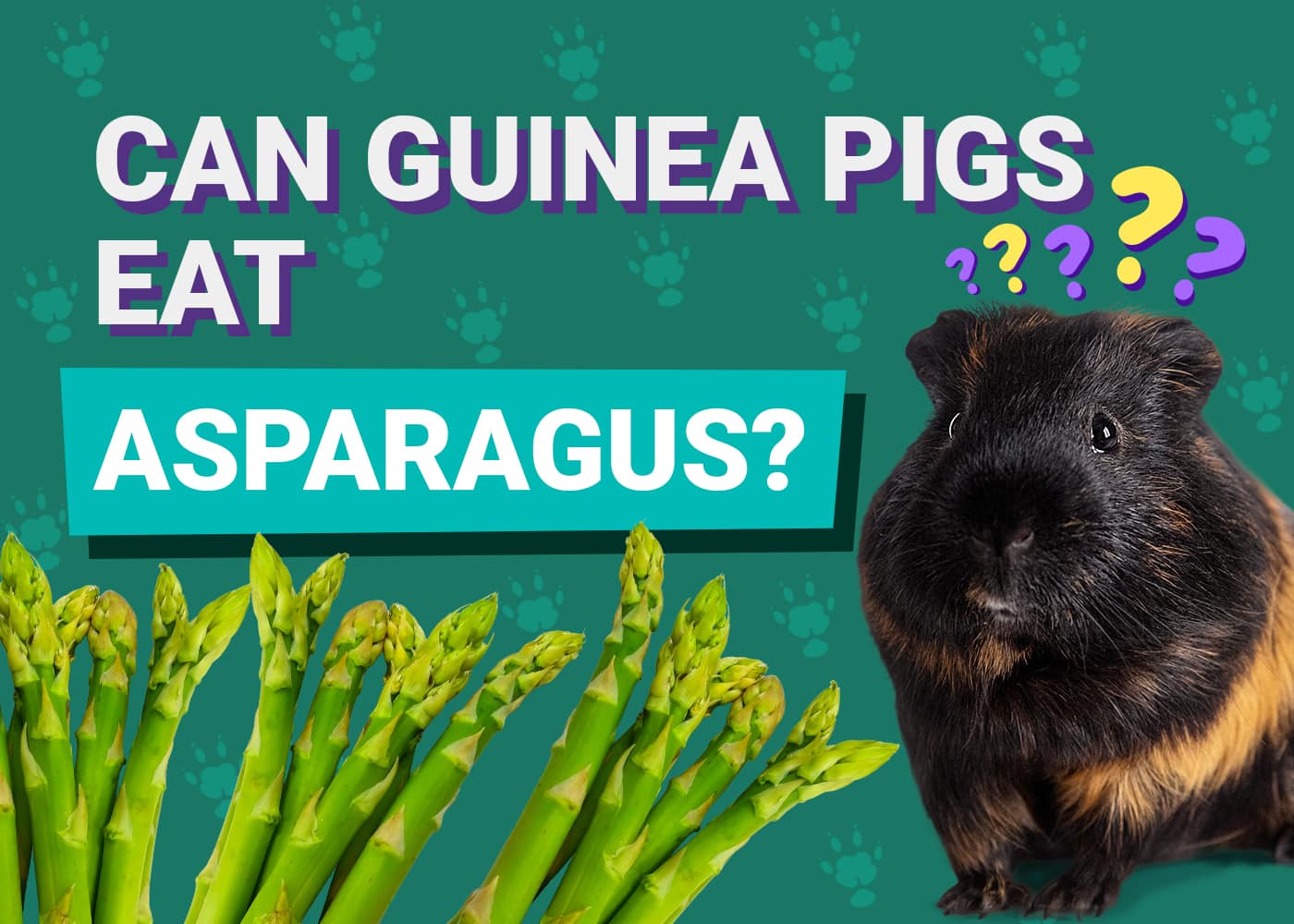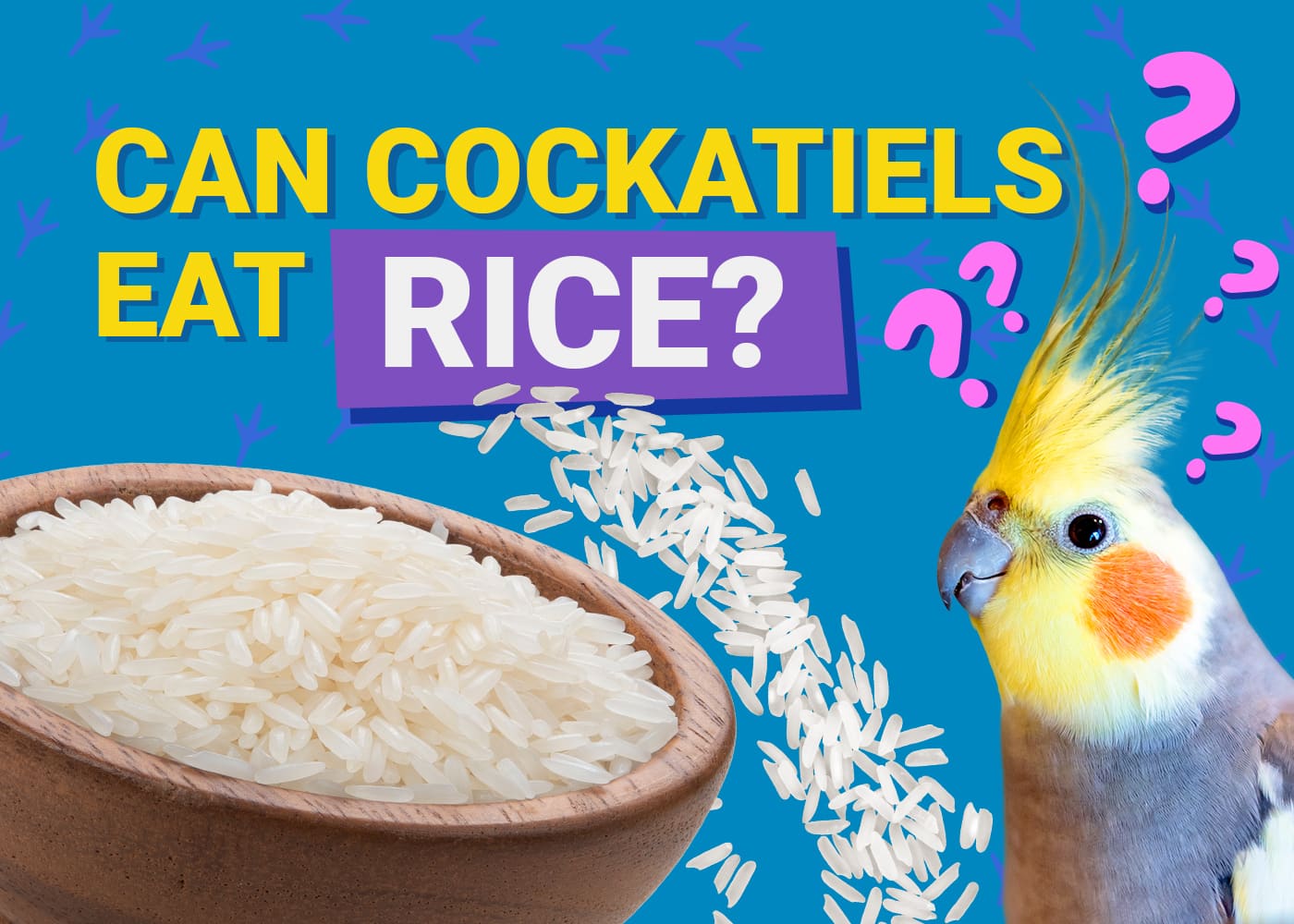VET APPROVED

The information is current and up-to-date in accordance with the latest veterinarian research.
Learn more »Click to Skip Ahead
As one of the most popular pets in the United States, rabbits can be found happily living in many American homes.1 They are also popular across Europe, especially in the United Kingdom. They’re fluffy, adorable, sensitive, and they make good pets for people with experience in caring for them. Rabbits eat mostly hay and small amounts of fresh leafy veggies and pellets.
Sunflower seeds can be cautiously considered as an occasional snack for your bunny, but only in moderation. Some of the risks of offering sunflower seeds to rabbits include digestive upset, risk of choking, gastrointestinal blockage and high fat content leading to obesity over time.
Read on if you’re interested in learning more about sunflower and other seeds and their safety when it comes to rabbits.

Which Type of Sunflower Seed Is Best for Rabbits?
There are two types of sunflower seeds: black oil and regular. The more appropriate ones for rabbits are the black oil sunflower seeds. Regular ones have much less nutritional value, but they aren’t toxic to bunnies, so they can be given to your fluffy pets occasionally. However, their hulls are thicker, making them harder to chew and increasing risk of gastrointestinal blockage, stomach upset and even choking. Black oil sunflower seeds offer much more in the way of nutrients, but the risks of adverse effects are still present, especially if seeds are given in excess.
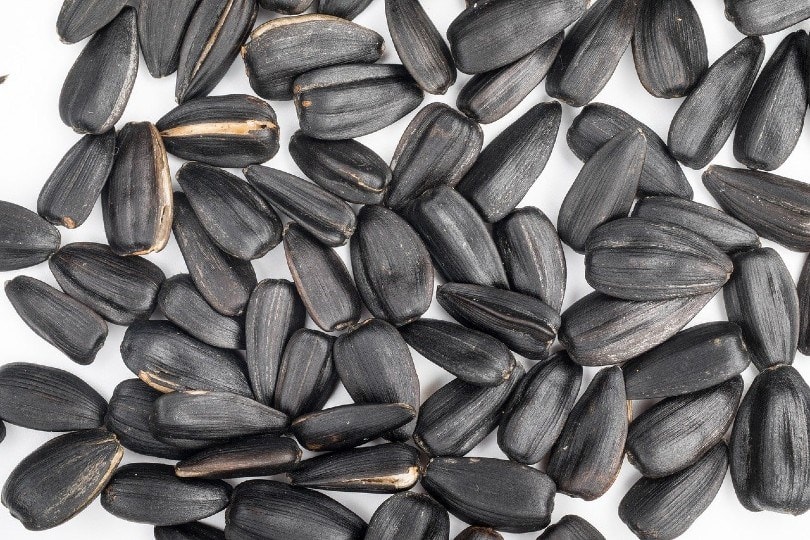
How Should Sunflower Seeds Be Fed to a Rabbit?
Sunflower seeds are tiny and come in a hard shell that while not toxic, isn’t edible for humans and should be discarded. There is debate as to whether de-shelling is the best way to give sunflower seeds to a bunny. Some say that rabbits can easily and safely remove the shells themselves. Others argue that for safety’s sake, you should remove the shells before giving your rabbit sunflower seeds. The truth be told, we would recommend rabbits are supervised when being offered sunflower seeds, and for peace of mind, it’s best to feed them without the shells, to minimize the risk of choking or gastrointestinal issues.
One thing to remember if you decide to give your rabbit sunflower seeds in the shell is that you should purchase them unsalted. The average rabbit doesn’t need the extra salt in their diet, and it can potentially lead to health issues if their water intake isn’t adequate, or they are suffering from health issues.
What Nutrients Do Sunflower Seeds Provide to Rabbits?
Although they aren’t nutritionally complete, sunflower seeds contain various nutrients that may be good for your rabbit’s health as an occasional addition. However, they cannot replace a balanced diet that is crucial for a rabbit’s health, based on hay and grass, with small amounts of leafy veg and pellets. The black oil variety is recommended for bunnies. They contain the following nutrients:
- Fiber
- “Good” fats
- Protein
- Calcium
- Vitamin B
- Iron
- Vitamin E
- Potassium
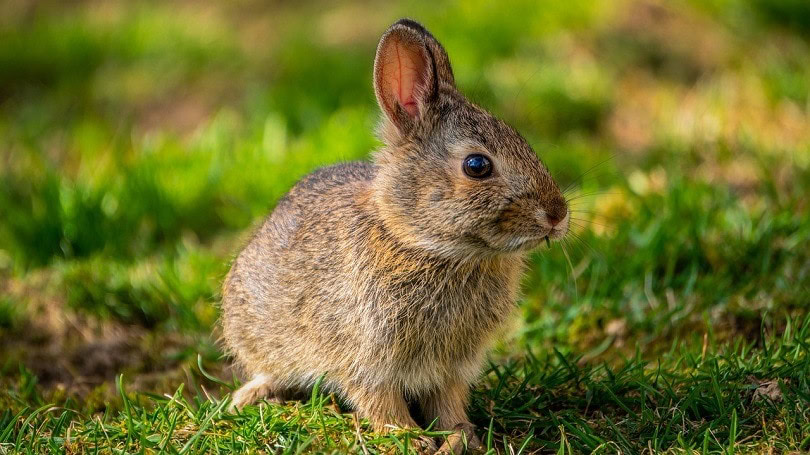
Can a Rabbit Eat a Lot of Sunflower Seeds?
Sunflower seeds are not a nutritionally complete product, and for that reason and due to the risk of them causing a gastrointestinal upset, they should only be given to your bunny in moderation. Some rabbit experts recommend no more than around 5 sunflower seeds to be given to your rabbit per week under supervision, which is admittedly a tiny number. In other words, sunflower seeds aren’t snacks that you should give your bunny every day. A few per week will keep your pet happy and healthy.
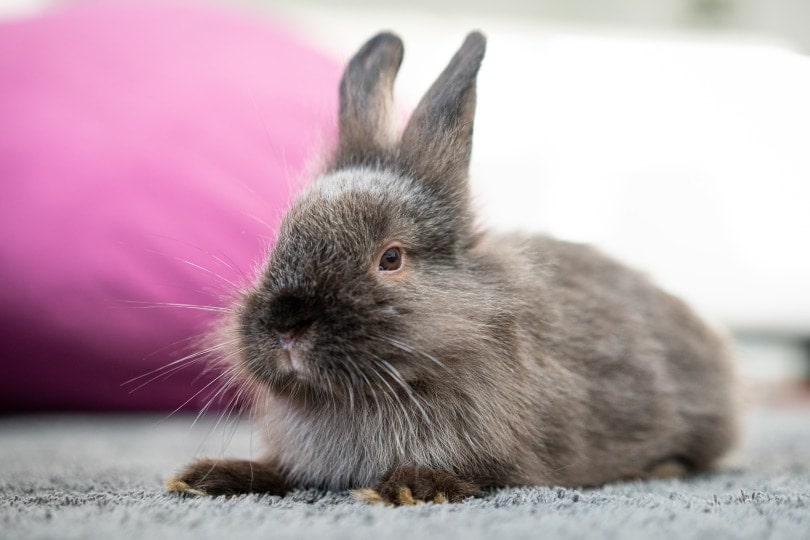
Why Should Sunflower and Other Seeds Only Be Given to Rabbits in Moderation?
One of the reasons you should give your bunny sunflower seeds in moderation is that they are high in fat, which can cause stomach upset and predispose your pet to obesity, as well as the risk of choking and a gastrointestinal blockage if too many are eaten. Some veterinarians believe that the ideal number of seeds, including sunflower, to give a rabbit is zero. They think that since sunflower seeds can cause potential health problems and rabbits can get their nutrients elsewhere, owners shouldn’t take the risk.
What Are the Best Treats for Rabbits?
Rabbits like sunflowers and other seeds, even though they aren’t healthy in large numbers. There are, however, many other foods that you can give your rabbit as a snack, with less risks for their health. Be aware that you should always look for treats with no added sugar and no artificial ingredients to protect your pet’s health.
Also, if you feed your rabbits some of the following wild plants, be sure they come from areas that haven’t been sprayed with herbicides or insecticides. They should also be well-cleaned first. Remember that treats should only make a small portion of the rabbit’s daily diet and should be focused on variety, combined with leafy green vegetables.
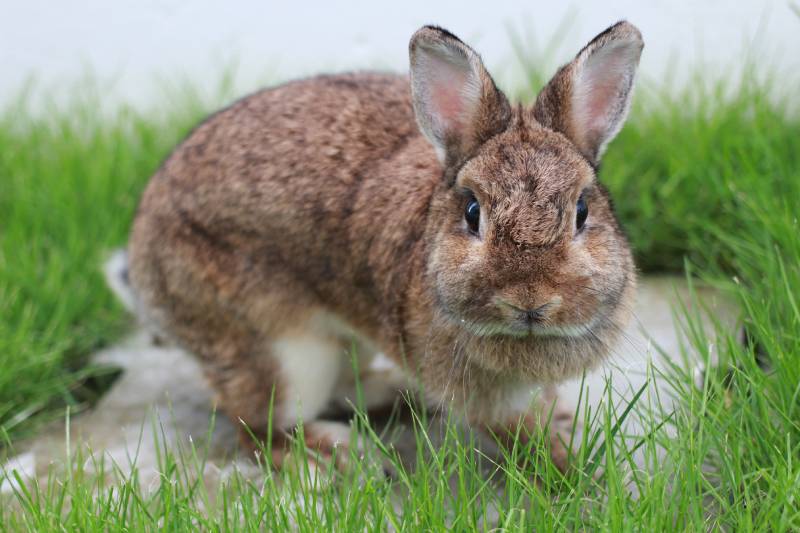
Dandelions
If you have dandelions, you can pick them right out of your yard, including the leaves. Ensure that you take them from a clean part of your lawn where pesticides, herbicides and insecticides have never been used. Wash the leaves well to remove dirt and other contaminants.
Most Herbs
You can keep potted herbs in your home for year-round treats. If you pick them outside, make sure it’s from an untreated area and be confident in plant identification. Finally, remember herbs should be offered in strict moderation and on occasion. The ones that bunnies can eat include:
- Borage
- Calendula
- Chamomile
- Chickweed (astringent)
- Clover (leaves and flowers, in strict moderation)
- Coltsfoot
- Comfrey
- Dandelion (diuretic properties)
- Goosegrass (cleavers) (these may stick to the coat!)
- Lavender
- Mallow
- Nettle
- Nasturtium (leaves and flowers)
- Shepherd’s purse
- Sow thistle
- Plantain
- Yarrow
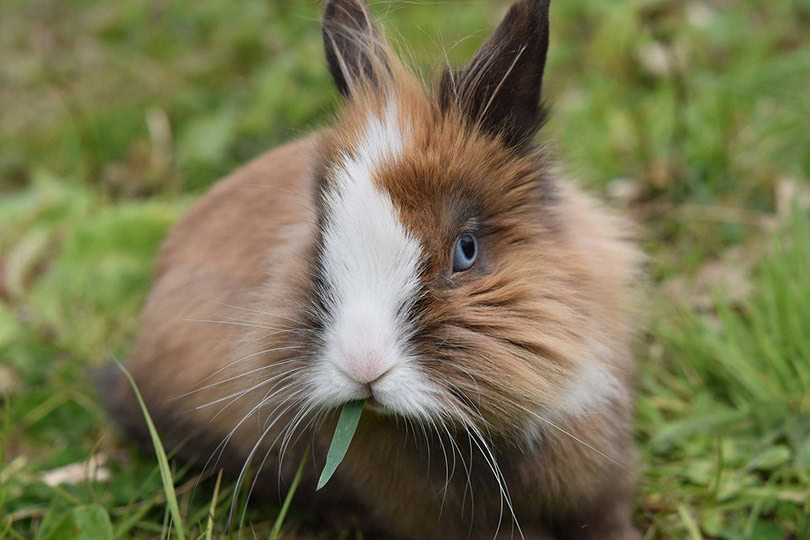
Grass
Plain grass from your yard sprinkled on your rabbit’s food or offered on its own is a great snack that they will love. Make sure it’s untreated, clean grass.
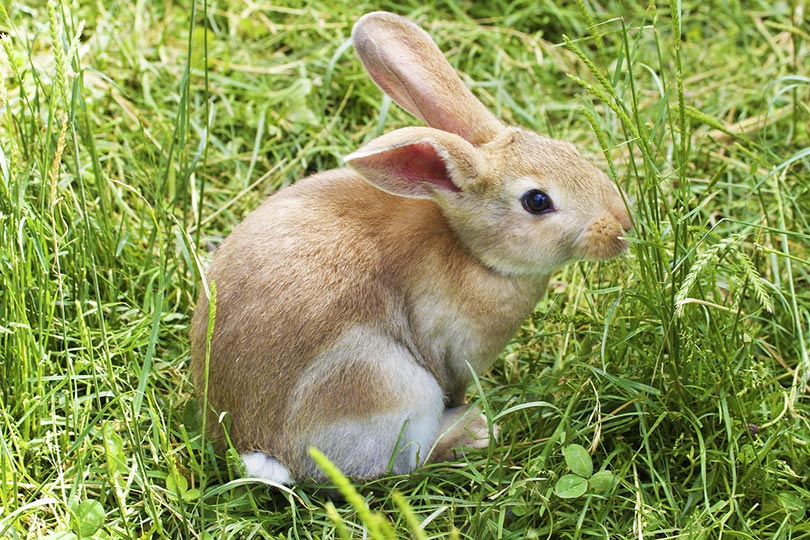
Various Leafy Vegetables and Fruits
There are many fruits and vegetables that rabbits can safely eat, but leafy vegetables should make 10-15% of their daily food intake. Be sure to wash any that you give to your furry friend to remove any soil and contaminants, and do not pick them from areas treated with pesticides and herbicides. Also, certain fruits, like apples, have seeds that can be toxic and should be removed first. Fruits and non leafy veg should make no more than 5-10% of combined food intake on a daily basis, due to high sugar content.
Which Seeds Are Toxic to Rabbits?
Seeds are generally best avoided when it comes to rabbits, due to many of the previously discussed caveats, such as choking risk, high fat content and risk of causing a stomach upset or even a gastrointestinal blockage.
Seeds that come from fruits should be avoided because of their cyanide content, as well as choking risk and possibility of gastrointestinal blockage, depending on their size and ingested amount. The seeds to avoid giving your rabbit include the following:
- Apple
- Apricot
- Cherry
- Mango
- Peach
- Pear
- Plum
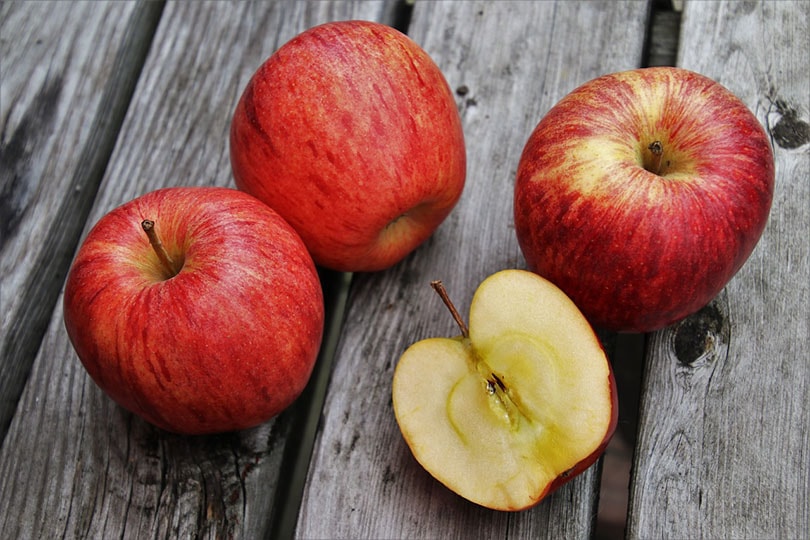

Final Thoughts
If you were wondering whether rabbits can eat sunflower seeds, you now know that they can, but under supervision and only in moderation, being aware of the potential caveats and risks. Veterinarians and rabbit experts recommend staying away from seeds altogether, in order to completely avoid any unnecessary risks. Besides choking, eating seeds can cause digestion problems and blockages for your pet, and high fat content may predispose for obesity and health issues. So although some seeds are safe to offer in moderation, if in doubt, don’t.
Still, sunflower seeds can provide rabbits with a range of essential nutrients, including much-needed fiber. They aren’t toxic, and you can give these seeds to your rabbit with the shells still on. Some vets, however, recommend removing the shells first to lower the risk of blockages and choking. Finally, black oil sunflower seeds are recommended of the two sunflower seed types, but regular ones can also be given safely to your rabbit in moderation.
